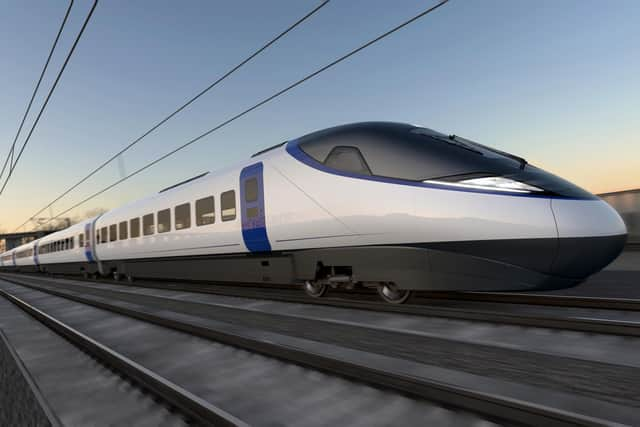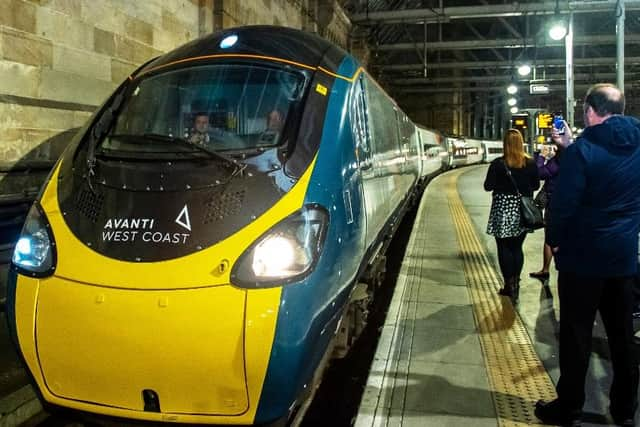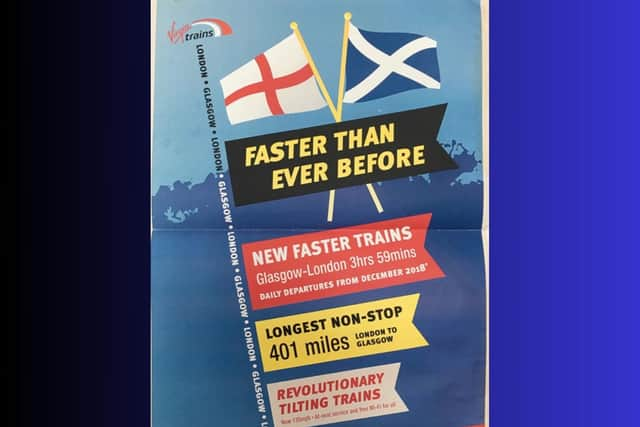HS2: Make Edinburgh/Glasgow-London journeys just as fast as on the truncated new rail line – Alastair Dalton
Are you sick of early morning flights to English cities and wish there was a faster rail connection? The Prime Minister’s decision last week to scrap the Manchester leg of HS2 has made that an even more distant prospect, not that high-speed rail reaching Scotland was ever going to happen anytime soon.
Surely no one north of the Border has been holding their breath for its arrival, and Rishi Sunak’s announcement at the Conservative Party conference won’t make much difference to the project’s impact on Scotland in the big scheme of things.
Advertisement
Hide AdAdvertisement
Hide AdYes, new HS2 trains will run on to Glasgow and Edinburgh from the end of the high-speed line in Birmingham, but from what I’m hearing, there may be virtually no journey time savings because of all the previous cuts to the scheme.


The 250mph trains will have to slow to half that speed or less on the west coast main line as they are likely to have to take bends slower than current trains because they won’t be able to tilt.
While HS2 is chiefly about freeing up greater capacity on what is one of Europe’s busiest lines, what’s left will be of limited scope for Scotland when it will now only cover one quarter of the distance between the Scottish and English capitals.
However, although the UK Government has truncated HS2, the Scottish Government hasn’t exactly delivered on its pledges either.
In 2012, the then Infrastructure Secretary Nicola Sturgeon announced plans for a Glasgow-Edinburgh high-speed line by 2024, declaring: “We will not wait for Westminster to bring high speed rail to us. We have already made moves towards seeing a high-speed line in Scotland and the evidence is now in place that this is feasible long before the HS2 proposals."


That would have part of a target of reducing journeys to London to three hours, seen as critical to make them competitive with air. It compares to an expected journey time of three hours 38 minutes if HS2 had reached Manchester, and just under four hours once it gets to Birmingham – although HS2 Ltd told me on Tuesday that is being reviewed in the light of last week’s announcement.
Trains between Edinburgh/Glasgow and London currently take about four-and-a-half hours, with the quickest, limited stop service on the east coast main line taking four hours.
However, there were plans before Covid to speed up the east coast main line with improvements, such as to power supplies, that would knock off up to 40 minutes from journeys, making four-hour services between Edinburgh Waverley and London King’s Cross the norm. Past west coast main line operator Virgin Trains had plans to make some of its Glasgow Central-London Euston services as fast as three hours 30 minutes.


Advertisement
Hide AdAdvertisement
Hide AdWith passenger numbers at the east coast main line’s main operator LNER the first to bounce back from the pandemic and now exceeding 2019 levels, there would seem to be a case for that. Meantime, on the west coast, the trains run by Avanti are already capable of 140mph – compared to the 125mph current limit – so there’s scope there too with signalling improvements, maybe even making them faster than HS2?
Comments
Want to join the conversation? Please or to comment on this article.